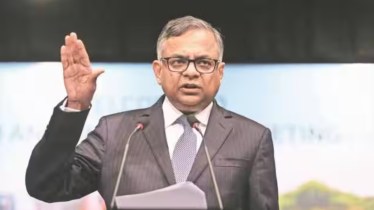Tata Sons chairman and B20 India Chair N Chandrasekaran on Friday said the data protection law has created an architecture for making private applications on the Internet using public data, while maintaining a complete privacy.
Speaking at a panel discussion at the B20 Summit India 2023, Chandrasekaran said the country has made a big breakthrough in the privacy space by taking a technical legal approach.
“On the one hand, we got the regulation for data privacy and data protection. On the other hand, we have created DEPA, which is data empowerment and protection architecture. With both working together, we are able to very safely secure with consent, any transaction and sharing of data at aggregate level with complete security, protecting privacy,” Chandrasekharan said.
DEPA is the technology architecture that provides data empowerment and protection architecture, creating the necessary public infrastructure architecture on which private applications can be built.
“It has got digital consent completely embedded. So, any sharing can be done at an aggregate level with the proper consent. It is a fantastic breakthrough I feel because it is very different from the traditional approach of over engineering the laws and regulatory framework, which is totally punitive,” Chandrasekaran said.
He observed that framing laws, which, when violated, would set off legal recourse and a strong set of damages has been avoided “because there’s no way that people will pay”. “So, the better way is to integrate a technology architecture with the legal framework. It is something to be studied and championed outside India,” Chandrasekaran said.
On artificial intelligence (AI), he said it will create more jobs in the country as it would empower more people with little skill or no skill to perform higher-level jobs.
IBM CEO Arvind Krishna observed that AI has the power to drive productivity, which can help companies and economies grow faster. AI, Krishna said, can take on certain low-level cognitive tasks and accomplish them.
“When you can do that, you make everyone more productive, in effect, you have more workers… you are generating more capita GDP in each nation… as we go back to very beginning of B20 about inclusion, that is the way to make GDP grow faster across all countries,” he said.
Calling for a regulatory blueprint, Microsoft president Brad Smith stressed the need for clarity around goals and principles of AI regulation. Smith said the blueprint would require action at the private sector, national and global levels. People want to be confident that this new technology, AI, will remain under human control, Smith said.
